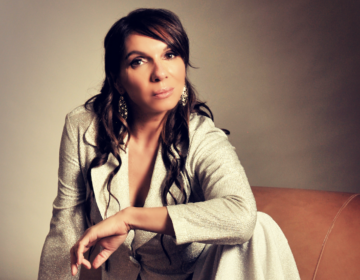A historic moment: Philadelphia musicians win Grammy for album showcasing unpublished songs of Florence Price
It was the first time an award for best classical solo vocal album went to music composed entirely by a Black woman.
Listen 3:24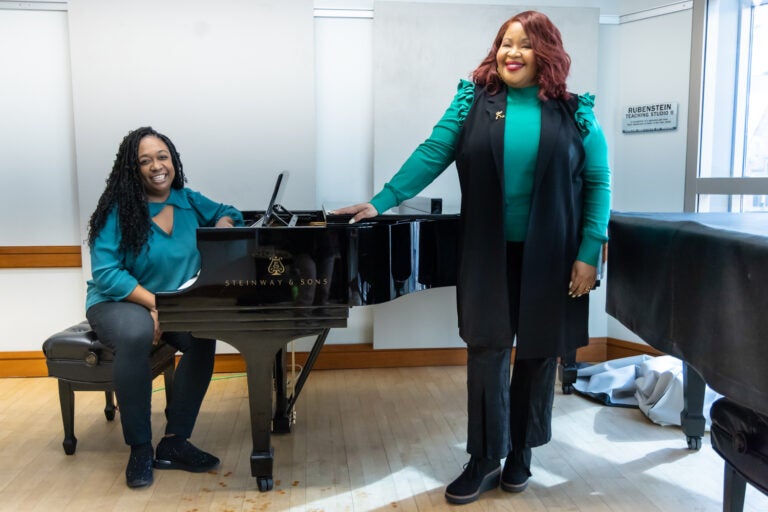
Pianist Michelle Cann (left) and soprano Karen Slack (right) won best classical solo vocal album at the 2025 Grammys for their recording ''Beyond The Years: Unpublished Songs Of Florence Price.'' (Kimberly Paynter/WHYY)
From Philly and the Pa. suburbs to South Jersey and Delaware, what would you like WHYY News to cover? Let us know!
Philadelphia-based soprano Karen Slack and pianist Michelle Cann recall the “surreal” moment when their names echoed through the Crypto.com Arena in Los Angeles as Grammy winners for the best classical solo vocal album.
Under the shining lights of the Grammy stage, the duo didn’t just bring home a trophy for their album “Beyond the Years: Unpublished Songs of Florence Price.” They created history Feb. 2.
“It was an incredible experience, still really surreal,” said Slack, who made her solo recording debut with the album. “Like yesterday, I was crying again. I’m just so proud of this accomplishment.”
It was the first time in that category that music composed solely by a Black woman was awarded, said Cann, a pianist and the Eleanor Sokoloff Chair in Piano Studies at the Curtis Institute.
“Florence Price should have been able to get Grammys in her time,” Cann said. “She should have been able to get all the awards, every award. I mean, she was a fantastic composer … We’re now understanding her impact and her genius, and it’s a beautiful thing, but at the same time, it’s bittersweet, right?”
In the 1930s, Price became the first Black woman composer to have her work played by a major American orchestra. But during her life, her race and gender meant her work was often rejected by major symphonies and orchestras. After Price’s death in 1953, her work was mostly forgotten, until boxes of music were found in the attic of her former summer home near Chicago in 2009. Out of those boxes in the attic came most of the songs featured on “Beyond the Years,” the majority of which had never been recorded.
“In the piano world, or instrumental world, she literally was a name that many of us had never heard of,” Cann said.
But when Cann first heard a piano concerto written by Price in 2016, Cann “fell in love with her writing” and has since played and championed Price’s work with the Philadelphia Orchestra and other ensembles.
Tamara Acosta and Stephen Spinelli, of the nonprofit ONEcomposer, worked with Slack and Cann to digitize the sheet music. ONEcomposer also produced the album with Azica Records’ Alan Bise.
Slack had first come across Price’s songwriter as a teenager, with some of her spiritual arrangements featured in an anthology of African American songs.
But when she first discovered Price’s full repertoire, she knew she wanted to record it as an album.
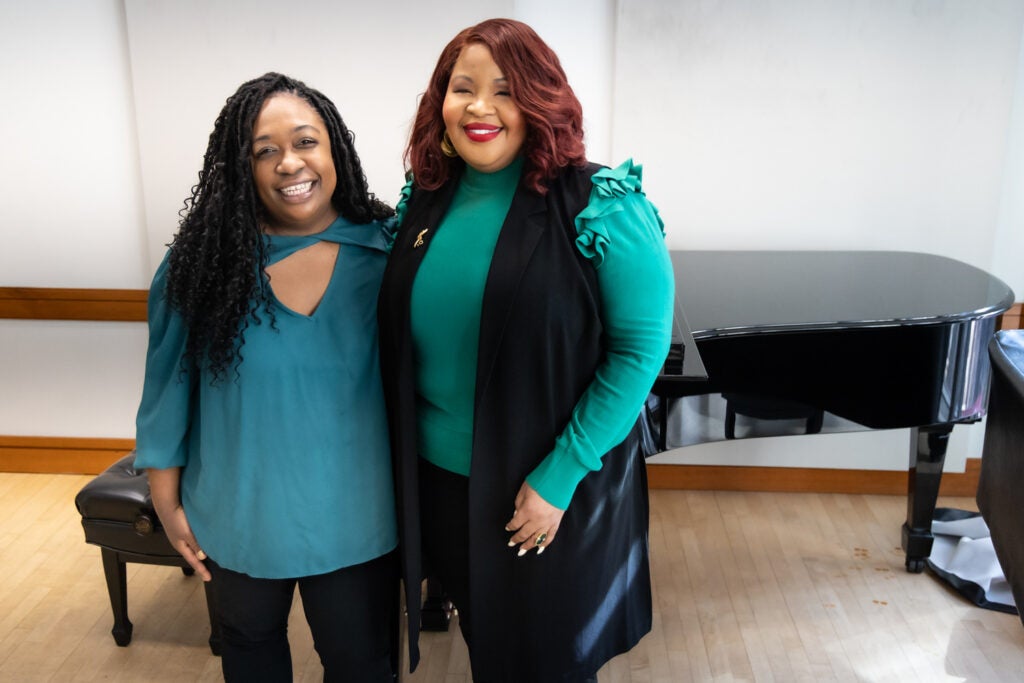
“I knew that Michelle was going to play, because the pieces are so complex for the pianist, you have to equally be as elite as a vocalist, because she wrote extraordinary for the voice and very, very technically sound,” Slack said.
Cann said knowing that she and Slack were the first to record many of the songs made the album all the more significant.
“When you know that you’re getting this opportunity, you know that you’ve got to put everything in it, and pour your heart and soul into that,” she said. “And really what you put out there you have to really be proud of, because you know that you’re the first that are showing the world what this music is capable of.”
‘The whole human experience’
Bringing Price’s scores to life was also significant for Slack and Cann as Black women artists in classical music.
Cann said there are still relatively few Black concert pianists in the U.S., and until college, she had never listened to any Black female composers for piano.
“Florence Price sent letters to the director of the Philadelphia Orchestra at that time, and they were ignored. She sent her symphonies to [the] New York Philharmonic, to all the big orchestras, Boston Symphony. She was ignored,” Cann said. “They would not take her seriously. They would not play her music.”
Slack said it’s clear that rejection was not based on the quality of Price’s music.
“Her pieces rival Schubert and Brahms and all these great European art song composers that we revel, like those are the ones that we have to master,” she said. “That’s the reason why she was kept out, because she was a bad girl, you know, in a very good way, in an amazing way, right? And so I’m just so grateful that we have now more repertoire, you know, at our access so that these things can be programmed.”
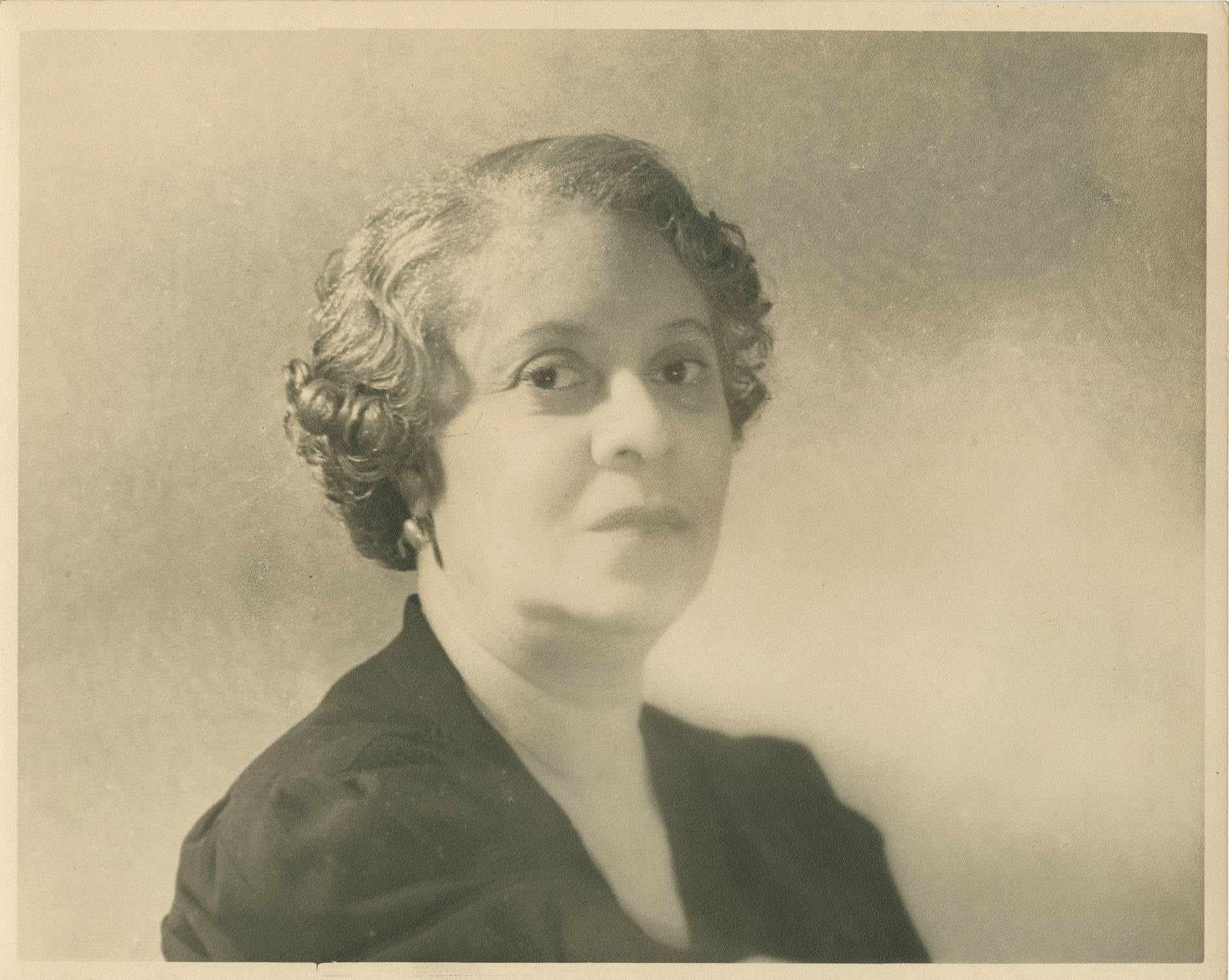
When Cann performed Price’s work with the Philadelphia Orchestra in 2021, she felt “chills.”
“I just sort of felt it was almost like she’s listening from up above,” she said. “It was chills in that moment, because she never got that, you know? I’m sure you can tell it’s just, there’s so many levels to what this means to us as artists, but the message for me is just, this is why we do these things, it’s because we want to change this narrative for the next generation that comes up, that we have to because they need to believe that they have a place in this field.”
Cann said she now makes sure to assign Price’s work to her students, so that knowledge of her work grows.
“I haven’t had one student that I’ve assigned some of her music to that didn’t just love playing it once they learned it,” she said. “She writes from the heart. Her music is so soulful and deep. It’s like the whole human experience and in each measure it’s just so full of life.”
‘A 911 situation’
For Slack and Cann, the album itself and the Grammy honor come at a significant time, as President Donald Trump has slashed diversity, equity and inclusion initiatives and reshaped the John F. Kennedy Center for the Performing Arts as its new board chair.
“Everything that I’m doing, all the opera roles, the new works that I do are stories of Black women, because I want to be able to control the narrative,” Slack said. “And now I’m like, that’s my career, that’s my livelihood, that’s everything … I can sing all the other stuff: Verdi, Puccini, Strauss, Mozart, which I love to do. And those are all a part of my core repertoire. But I am worried. I am concerned. And it is a 911 situation, you know, without diversity, equity and inclusion … What are we in the 21st century as classical artists? How do we tell this audience that what we are is still relevant for the time?”
Slack said even as an opera singer and musician who is revered onstage, her race and gender impact what happens offstage.
“There’ll be people that get to hear you perform and then treat you differently when they see you on the street,” she said. “That’s the reality that we live in.”
Cann said Price’s story is an example of why diversity, equity and inclusion efforts are needed in the first place.
“When we put this album out there, it was because it is great music,” Cann said. “Of course, it had an impact, because she was a Black woman, and for us as Black female artists, that was inspiring to see ourselves represented in the past. Of course, specifically, it had a personal significance for us to pursue this as the way that we did. But ultimately, we wouldn’t have pursued anything if we didn’t believe in what she had to offer.”
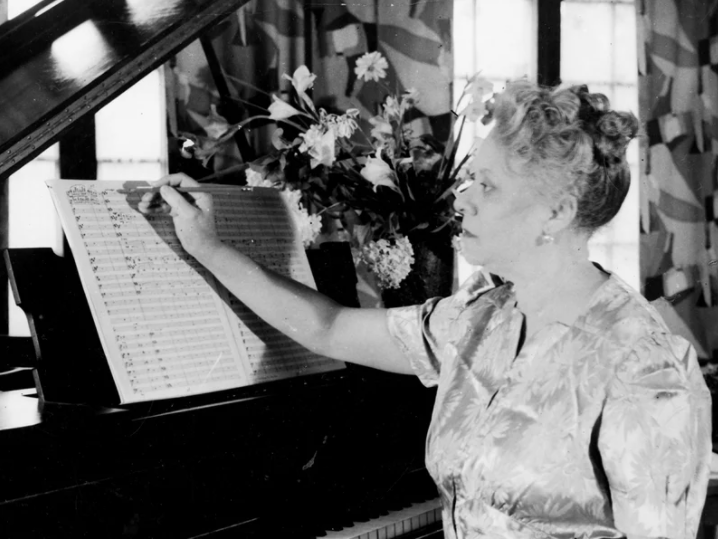
She said she likes to use the example of sending someone Price’s music and not telling them who wrote it.
“Absolutely wonderful music, right? You can’t believe you haven’t heard this, right? But, oh, sorry, color did matter,” she said. “That’s why you didn’t hear it, because when she wrote it, color and gender mattered. It mattered so much that they wouldn’t promote it. So how do we change that? Right? So the only way to change it is in intentional ways. You have to intentionally make moves that then change the landscape. And then when people start to see all these faces and appreciate everything that’s being offered, hopefully we start to have a society that doesn’t even think about that when it comes time to put a concert together.”
For Slack, whose voice dips and soars like a bird in flight, and Cann, whose fingers flow like the river current on the piano keys, their win was not just a personal victory, but a step forward in the journey toward true artistic representation.

Saturdays just got more interesting.
WHYY is your source for fact-based, in-depth journalism and information. As a nonprofit organization, we rely on financial support from readers like you. Please give today.






